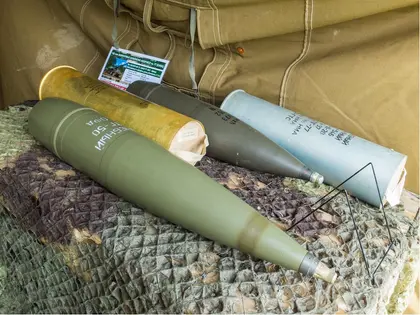Cotton pulp is a lustrous, natural material made from the leftover fibers after cottonseed has been processed. The tough yet soft fibers have a wide range of uses, primarily in the manufacture of various kinds of paper, including bank notes, lacquers and paints. Another, less benign use of the material is as a key component in the manufacture of nitrocellulose, which itself is a critical raw material for the manufacture of all propellants and other explosive components.
Referencing customs data, the Moscow Times has reported that Russia has been sourcing increasing quantities of nitrocellulose through Turkey and China since the start of the war in Ukraine.
JOIN US ON TELEGRAM
Follow our coverage of the war on the @Kyivpost_official.
Russia has imported a total of 6,000 tons of nitrocellulose in the past two years against almost 80 separate contracts, notwithstanding an EU ban on shipments of the material to Russia going back to April 2022. The amount is five times more than pre-2022 quantities, and almost two-thirds of that have been provided by two Turkish companies, with the rest from a single Chinese supplier.
It is believed that the Turkish supplier bought the bulk of its nitrocellulose from EU producers in Germany, Czechia, Italy and Spain. This double handling resulted in a significant price increase to the material coming from the Turkish supplier. Increased scrutiny of the supply of nitrocellulose and other dual-use materials by US sanctions enforcement investigators may force Russia to look elsewhere for this key ingredient.

Trump’s Russia Plan – Will It Work? NATO, Putin & US Strategy Explained
Cotton pulp is already being shipped to Russia from Kazakhstan and Uzbekistan. Organized Crime and Corruption Project (OCCRP), an investigative journalist network, reported in December that despite their supposedly neutral stance on the war in Ukraine the two countries had ramped up exports of cotton pulp to Russia since February 2022.
Citing trade data, OCCRP reports that most of the cotton pulp exports to Russia from the central Asian countries went through intermediary import companies, before being sold on to state-owned munitions factories sanctioned by Ukraine, the US, the EU and others.
At least two Uzbek exporters, however, have made direct deals with Russia’s military factories, including the Kazan gunpowder plant located in the southwest Russian Tatarstan Republic. The Russian news outlet Realnoe Vremya reported in January 2023 that it had been announced in 2018 that this propellant and explosives factory was being modernized, with an increased ability to produce cellulose nitrates.
Moscow has used a huge proportion of its stocks of ammunition over the past two years of war and has struggled to increase its production of new ammunition. It has tried to find new supplies from countries like North Korea, which is believed to have sent Russia over a million artillery shells.
Experts cited by the Moscow Times suggest that Russia’s imports of nitrocellulose and cotton pulp were sufficient to produce the equivalent of 700,000 artillery shells per year. As such, cotton pulp may be a rather unsexy, mundane material, but it is essential to the Kremlin’s war machine and efforts to prevent its transfer to Russia must be as strenuous as that for microchips and other more technologically advanced components.
You can also highlight the text and press Ctrl + Enter










